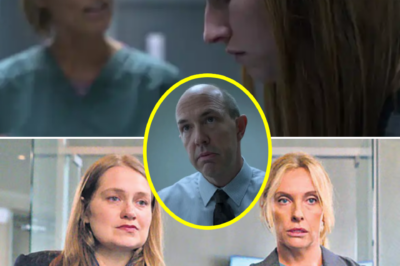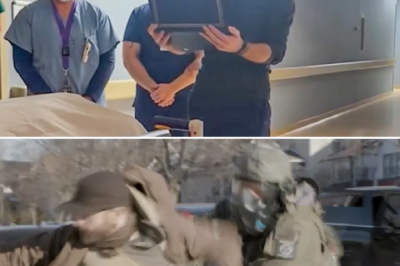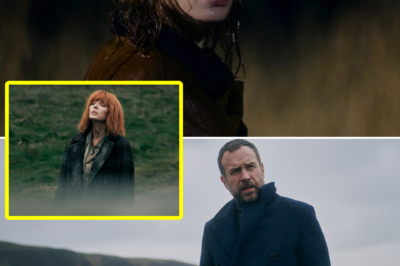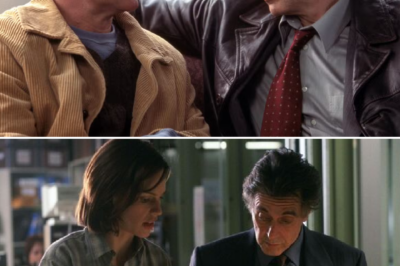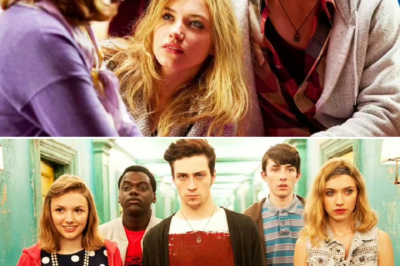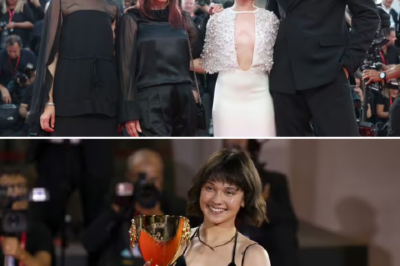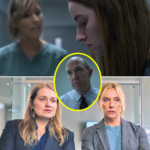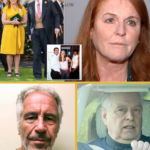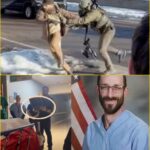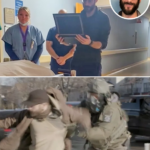Sergeant Caleb Foster was not a hero from an action movie. He was a kind, quiet military engineer who served two tours in Iraq. What set Caleb apart was his passion for vintage film photography and a small oak box, which he guarded more carefully than his own insignia.
When he returned from the war, Caleb carried the invisible wounds of PTSD (Post-Traumatic Stress Disorder). He couldn’t stand loud noises, and good sleep was a luxury. But what tormented Caleb most wasn’t what he experienced, but what he witnessed: the fragile joy of children and the devastating fragmentation of innocent families amidst the war.
The Photo That Bloomed in the Minefield
During a mine clearance operation on the outskirts of Baghdad, Caleb’s unit discovered a bombed-out house. Inside, they found an old film camera and a roll of undeveloped film. Caleb kept it. Later, back in the States, he developed the roll, and the final photograph haunted him: it was the image of a girl, about six years old, smiling brightly while clutching a tattered rag doll.
This photo became Caleb’s compass. He realized that, anywhere in the world, the most precious thing was not weaponry, but the innocence and hope of a child.
After his discharge, Caleb did not choose a comfortable desk job. He used all his savings and disability compensation to found a small non-profit organization called “The Box of Light.” The organization’s goal was profoundly simple: to use art and photography to help other veterans heal their wounds and bring joy to children in underserved areas.
A Promise Made to Empty Eyes
Caleb’s psychological scars made communication difficult, but he found solace in teaching other veterans to use photography as therapy. He gave them cameras, encouraging them to capture the beautiful, fleeting moments of everyday life. From there, “The Box of Light” created small photo exhibitions, sold the prints, and used all the proceeds to purchase medical supplies, books, and especially solar-powered lamps for impoverished children overseas, where electricity was a luxury.
The most poignant moment of his journey came when Caleb decided to return to Iraq, not in an armored vehicle, but on a civilian flight carrying a suitcase full of solar-powered LED lights.
In a small village in Mosul, recently liberated from heavy fighting, Caleb met a ten-year-old boy named Samir. Samir’s eyes were vacant, completely devoid of the light of childhood. When Caleb offered him a small, solar-powered study lamp, Samir only stared, expressionless.
That evening, as the faint moonlight covered the village, Caleb saw Samir sitting outside his ruined home. For the first time, the small lamp was turned on. The warm glow from the lamp didn’t just illuminate the boy’s old textbook; it illuminated his face.
Samir looked up at Caleb, and instead of words, he offered a crude drawing: it was the image of an American soldier placing a small rose on a pile of rubble.
Caleb knelt down, tears streaming down his face. He had found the answer to his sleepless nights and his nightmares. This was the meaning of service: Transforming war into light, transforming pain into hope.
A Timeless Legacy
Caleb went on to help hundreds of other veterans find purpose through art, guiding them to shift their focus from the sound of gunfire to the click of a camera shutter. He proved that a soldier’s work does not end when they take off their uniform; it continues in the smallest, most human acts of service.
A year after his trip to Mosul, Caleb Foster passed away suddenly due to a heart attack, likely a result of accumulated stress.
At his funeral, there were not only his old comrades and family, but hundreds of strangers. People did not speak of his medals or combat achievements, but of “The Box of Light” and Samir’s final drawing, which was enlarged and placed prominently.
That image was not of a battlefield, but of the boy Samir studying under the warm LED light, next to a small, blooming rose.
Caleb’s legacy was not the sacrifice on the front line, but how he chose to spend the rest of his life healing himself and the world. He taught everyone the deepest lesson: A soldier’s true value lies not in the power to destroy, but in the power to create hope and light, even in the deepest darkness.
He became the silent hero, the one who brought the light of hope back to veterans and innocent children, dedicating his life fully to his country and society through an act of profound human kindness.
News
Beyond a Crime Thriller: The Real-Life Netflix Masterpiece That Millions Find Impossible to Stop Watching Once They Start
The Netflix series premiered in 2019 (Image: Netflix) Some of the greatest crime dramas take their inspiration from the darkest of…
Witness to the Fatal Sh00ting of Alex Pretti Breaks Silence: ‘I Feel Guilty’
Jose Huerta Chuma is a man in hiding — and he’s also a man in distress. He’s been replaying the…
6 Episodes of Pure Adrenaline: This New Jan 2026 Crime Thriller is So Gripping You Won’t Dare Blink for a Second!
Viewers who tuned into Sky’s new crime drama, Under Salt Marsh, have hailed the series as “gripping” and “brilliant” following…
Christopher Nolan’s Forgotten Masterpiece: The Most Haunting Villain in History, Overlooked for 20 Years
The film stars Robin Williams and Al Pacino (Image: Insomnia) Some films are talked about for years. Others drift into the background, even…
The film, affirmed by audiences as a ‘forgotten masterpiece,’ is completely taking over every family’s TV screen this weekend
Netflix fans say ‘don’t listen to critics’ as thriller with 9% rating added (Image: NETFLIX) Netflix has recently introduced a nostalgic…
Surpassing Every Blockbuster: Sofia Coppola Delivers Her All-Time Masterpiece, Stripping Bare the Secret Life of Muse Priscilla Presley
Priscilla holds a successful 84 percent on Rotten Tomatoes (Image: Getty) A drama written, directed, and produced by Sofia Coppola,…
End of content
No more pages to load

